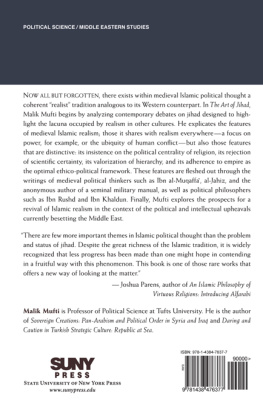Institutionalizing Violence
Institutionalizing Violence
Strategies of Jihad in Egypt
JEROME DREVON


Oxford University Press is a department of the University of Oxford. It furthers the Universitys objective of excellence in research, scholarship, and education by publishing worldwide. Oxford is a registered trade mark of Oxford University Press in the UK and certain other countries.
Published in the United States of America by Oxford University Press
198 Madison Avenue, New York, NY 10016, United States of America.
Oxford University Press 2022
All rights reserved. No part of this publication may be reproduced, stored in a retrieval system, or transmitted, in any form or by any means, without the prior permission in writing of Oxford University Press, or as expressly permitted by law, by license, or under terms agreed with the appropriate reproduction rights organization. Inquiries concerning reproduction outside the scope of the above should be sent to the Rights Department, Oxford University Press, at the address above.
You must not circulate this work in any other form and you must impose this same condition on any acquirer.
Library of Congress Cataloging-in-Publication Data
Names: Drevon, Jerome, author.
Title: Institutionalising violence : strategies of jihad in Egypt /
by Jerome Drevon.
Other titles: Institutionalizing violence
Description: New York, NY : Oxford University Press, [2022] |
Includes bibliographical references and index.
Identifiers: LCCN 2022005808 (print) | LCCN 2022005809 (ebook) |
ISBN 9780197643693 (hardback) | ISBN 9780197643716 (epub)
Subjects: LCSH: RadicalizationEgypt. | JihadEgypt.
Classification: LCC HN786.Z9 .R347 2022 (print) | LCC HN786.Z9 (ebook) |
DDC 303.48/40962dc23/eng/20220330
LC record available at https://lccn.loc.gov/2022005808
LC ebook record available at https://lccn.loc.gov/2022005809
DOI: 10.1093/oso/9780197643693.001.0001
ma famille
Contents
This book results from several years of studies, travels, and meetings. It is not easy to render justice to all of those who have, to varying extents, contributed to the final outcome presented in these pages. I can only try to extend my most sincere gratitude to all of them and hope that any possible omission will be forgiven.
First, I would like to thank my parents, to whom this book is primordially dedicated. Their unconditional support for my endeavors was unrelenting. With great sadness, my father passed away and will not get the chance to witness the completion of this work. My wife whose support was constant and unwavering throughout deserves special appreciation.
Jeroen Gunning never wavered in his assistance and encouragement. He trusted this project from its inception and was a pillar of support during some of its most challenging times. Jeroens understanding of contentious politics and Islamist movements in the Middle East and incisive questions have significantly contributed to the final version of this book. Jeroen has been an encouraging and critical reader whose help has proven invaluable.
I would like to express my gratitude to all the interviewees that I met from the Islamic and Jihad groups, their respective political parties, and the Egyptian salafi jihadi trend. I appreciate their hospitality and eagerness to help me understand their personal histories. I could not have retraced their groups trajectories without their direct contributions. Although they cannot be named for security reasons, I would especially like to thank two of my more direct Islamic Group (IG) interlocutors for their time and for kindly introducing me to many fellow IG members in Asyut. A prominent member of the first IG leadership council was also instrumental in granting me access to the groups current leadership. Additional assistance by Islamic Jihad (IJ) leaders introduced me to the group and helped me organize collective and individual meetings.
The University of Durham was a very good host for the undertaking of this research. James Piscatori and Wilf Wilde notably acted as a catalyst for many fruitful discussions. Wilf also deserves special thanks for helping me to secure a fellowship with the Durham Energy Institute (DEI).
Leah Farrall, Michael Kenney, Roel Meijer, and James Piscatori have carefully read and commented on this book and have decisively contributed to the general argument presented in the following chapters. Leah was particularly insightful on Egyptian jihadism and al-Qaedas early developments. Lorenzo Bosi gave me the opportunity to present the second chapter at the Scuola Normale Superiore (SNS) and refine my main argument with other social movement scholars, including Stefan Malthener whose help was precious. In addition, Joas Wagemakers has commented on the chapter on salafi jihadi ideology and Stathis Kalyvas, Elizabeth Kendall, Jonathan Leader Maynard, Raphael Lefvre, and Andrea Ruggeri in Oxford as well as Tore Hamming and Emy Matesan shared thoughts and comments.
This book would not have been possible without the generous assistance of the Swiss National Science Foundation (SNSF), which granted me a doctoral fellowship in 2012 and 2013 and three additional fellowships in 2015, 2017, and 2018. This assistance gave me the time to revise my research and present preliminary outcomes in many conferences and workshops organized in Australia, Europe, and North America.
Several chapters and papers were presented at the 2013 and 2014 Annual Conference of the European Consortium for Political Research (ECPR), the 2013 Annual Meeting of the Middle East Study Association (MESA), the Change and Continuity in the Middle East and Central Asia Conference at the Australian National University (ANU) in 2012, the Fourth Global International Studies Conference in Frankfurt in 2014, the 2013 Middle East Dialogue Meeting in Washington, DC, the Political Studies Association Graduate Network Conference in Oxford in 2012, the University of Laval in 2014, and the University of Manchester in 2013. These papers received numerous comments and I am grateful to all the participants. This book has also benefited from the annual summer methodological training offered by the Institute for Qualitative and Multi-Method Research (IQMR) and the ECPR Joint Session on the Institutionalization and De-Institutionalization of Political Organizations organized by Lars G. Svsand and Robert Harmel.
A few additional institutions have provided assistance to participate in international conferences: Aidans College at the University of Durham, ECPR, MESA, the School of International and Government Studies (SGIA) at the University of Durham, and SNSF.
This book, finally, benefited from many discussions with numerous friends and colleagues. Foremost among them is Caelum Moffatt, who shared this doctoral journey as a close friend and has always been there to share and discuss new ideas. This research has substantially benefited from Caelums critical insights and analysis. Finally, I would like to thank Aron Lund and Mike Marcusa for sharing ideas on Syrian and Tunisian jihadism, Patrick Haenni, Sam Heller, and Amr Jomaa for ongoing discussions on the salafi jihadi movement, Jean Nicolas Bitter on the nature of religious authority, Marwa Daoudy for her early encouragements, and Thomas Hegghammer, Brynjar Lia, and the Jihadi Document Repository for sharing primary sources.











